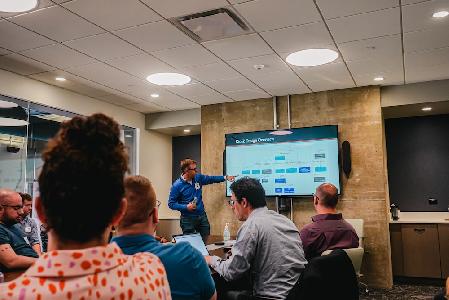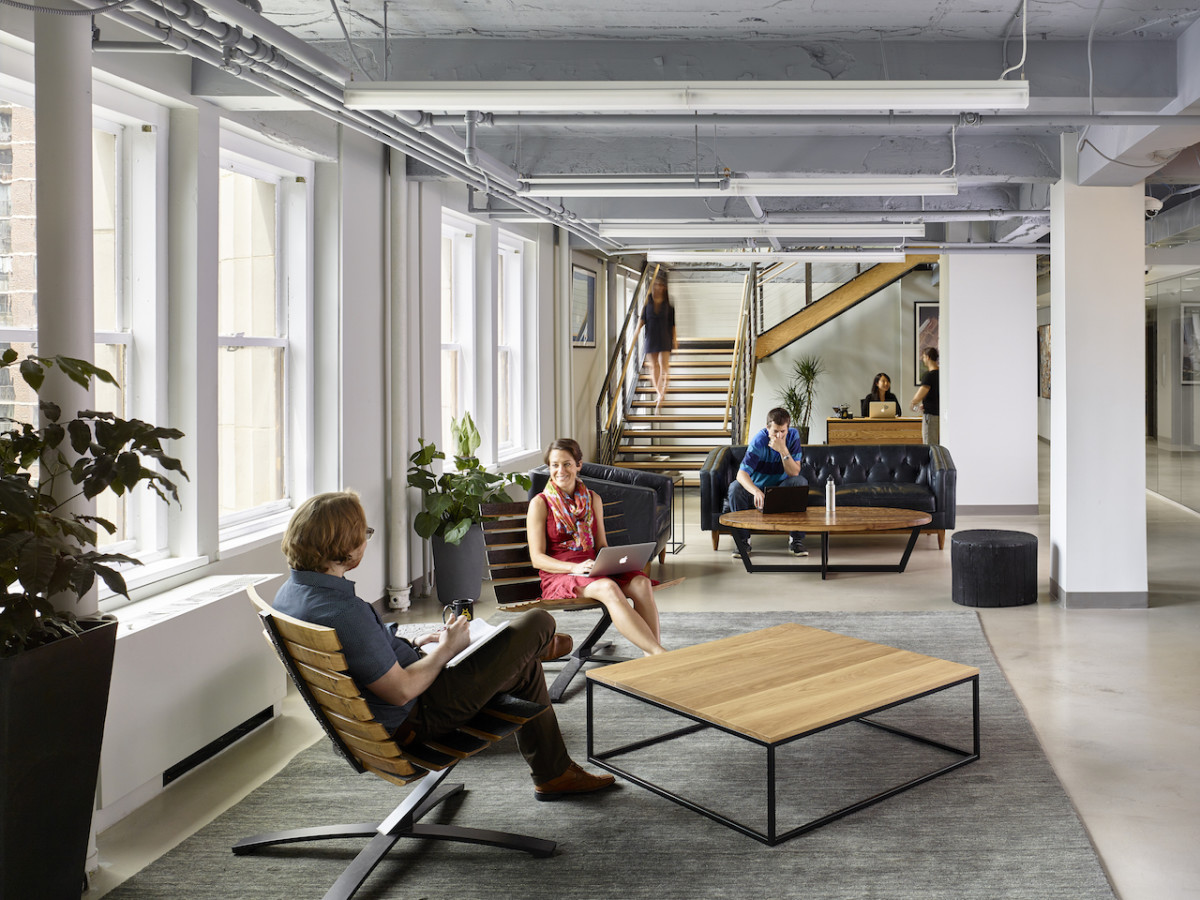There’s been a lot of coworking news lately. More on that in a bit.
Two things first:
- When it comes to Philadelphia coworking, forget the millennials — it’s actually middle-age people who make up a greater percentage of Philly’s ranks of the self-employed and need office space.
- Look for more national operators of coworking spaces to start locating in Philadelphia through the end of this year and into 2016.
Those were perhaps the two biggest takeaways from a brand-new report, “Philadelphia’s Independent Economy: Implications for Office Space.”
Read the report
Underwritten by the Knight Foundation, the report was produced by the Center City District (CCD) and the Central Philadelphia Development Corporation (CPDC). Results were shared for the first time at the Union League on Tuesday, and after an opening quip asking folks to surrender their apples — one object that was confiscated during #PopeInPhilly — panelists got down to the good stuff: 16 pages of analysis on Philly’s coworking economy.
Center City District’s Paul Levy offered the most comprehensive breakdown of findings in this new report:
- Between 30,000 and 35,000 people in Philly, or less than 5 percent of the city’s workforce, are self-employed/freelancing, a number that has remained constant since 2000. The median age of the Philly freelancer is 47.
- But within coworking spaces, roughly 30 to 40 percent of those sitting at desks or renting offices are startups, small companies, or employees of regional, national, or international firms that don’t have an office presence in Philly but are considering it. CCD and CPDC got this figure by surveying workers at Benjamin’s Desk, Pipeline, Industrious and CultureWorks.
- What this data represents is a subtle shift in Greater Center City that has been taking place since 2007: as more square footage has gone to coworking space, there has been a decrease in traditional office space. Still, of the 43 million square feet of office space within that Greater Center City area bounded by Girard and Tasker Avenues and the Schuylkill and Delaware Rivers, coworking spaces account for just 200,000 square feet, or less than 1 percent, of the office real estate.
“If you go into coworking spaces, most cases you won’t find millennials; you will find that 35-to-54 group who’s going to dominate in there,” Levy said. “And in only one of our spaces did independent workers dominate. In most of them, they’re less than half.”
The trend seems to be that small companies take space in coworking facilities and eventually lease their own small office space in Philly if they are able to, while larger firms, including those from the Philly suburbs, will take coworking space to determine if an office in Philly is right for them.
The other interesting piece of data shared came from Lauren Gilchrist, director of research at real estate giant Jones Lang LaSalle (JLL). In the last eight years, 18 coworking spaces have opened in Philadelphia, split between 11 local operators and seven national operators. But in 2015 alone, four national operators have opened or are soon to open coworking spaces, while only one local operator, Benjamin’s Desk, has a new — and in its case, second — space coming soon.
- Larger players like Industrious and the forthcoming outpost of WeWork, a company which is valued at $10 billion, seem to have the ability to open and maintain large spaces, and benefit from national networks that their workers can tap into. (According to Peter Soens, a partner with SSH Real Estate who also spoke on the panel, Industrious’ new space on South Broad Street is 100 percent full and has a waiting list.) Still, Impact Hub, an international outfit catering to impact-minded entrepreneurs and others, recently announced the closing of its Kensington space.
- Smaller coworking spaces, in some cases, can struggle to maintain funding, as was seen in the last year with Venturef0rth.
- Look at it this way: local coworking spaces make up 90,650 square feet of the 200,000 square feet dedicated to coworking space in Philly; national coworking spaces comprise the balance.
Finally, Gilchrist mentioned that WeWork, in addition to the coworking space it plans to open in Northern Liberties in 2016, is also looking for additional space downtown.
If she had to guess, she said, she’d say that space will be located in downtown Philly. When reached for comment, WeWork said it “does not have additional information to share about plans in Philadelphia at this time.”
Join the conversation!
Find news, events, jobs and people who share your interests on Technical.ly's open community Slack

Philly daily roundup: Student-made college cost app; Central High is robotics world champ; Internet subsidy expiration looms

Philly daily roundup: Earth Day glossary; Gen AI's energy cost; Biotech incubator in Horsham

Philly daily roundup: Women's health startup wins pitch; $204M for internet access; 'GamingWalls' for sports venues

